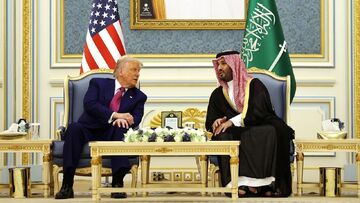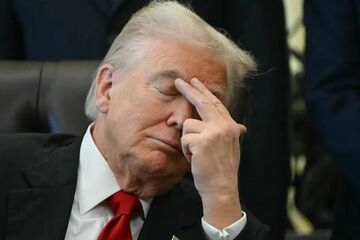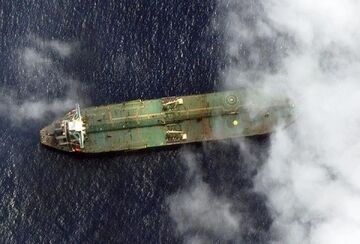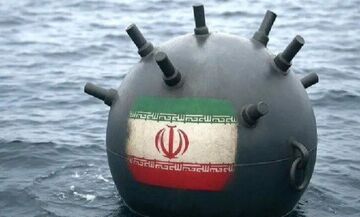Tehran(Bazaar)- The ECO cannot become a more effective regional integration platform without Iran enhancing cooperation with its fellow neighboring members, which includes Turkmenistan alongside Afghanistan, Azerbaijan, Pakistan, and Turkey, Andrew Korybko tells Bazaar in an exclusive interview.
He also says that the China’s 25-year strategic partnership with Iran will serve as the anchor of Chinese-Central Asian-West Asian integration.
Following is the text of the interview:
Bazaar: With the visit of Ayatollah Raisi to Turkmenistan and meeting with the President of this country, it seems that the relations between the two countries are warming up in the government of Raisi and bilateral economic exchanges between the two neighboring countries will expand. What is your assessment and opinion in this regard?
The trip can be assessed positively as the intent of Iran to comprehensively strengthen its integration with regional nations to the east through the Economic Cooperation Organization (ECO).
It shows that the Islamic Republic considers itself playing an important role in the emerging multipolar processes in this part of the world. The new government has also signaled that it pragmatically wants to improve relations with neighboring countries like Turkmenistan.
The ECO cannot become a more effective regional integration platform without Iran enhancing cooperation with its fellow neighboring members, which includes Turkmenistan alongside Afghanistan, Azerbaijan, Pakistan, and Turkey.
Bazaar: In the joint meeting of the representatives of the Islamic Republic of Iran, Turkmenistan and Kazakhstan, which was held (Friday, December 26) on the sidelines of the summit of the ECO member states, a document on rail cooperation between the three countries was signed. To what extent will this memorandum benefit from the capacity of the North-South corridor to develop economic and political relations on the one hand and increase the country's non-oil revenues on the other?
Korybko: That document complements the prior Ashgabat Agreement between them and several other nations aimed at improving North-South connectivity between Central Asia, the Gulf, and the Indian Ocean.
It’ll provide some of the Central Asian Republics (CARs) alternative access to the global economy through the North-South Transport Corridor (NSTC) to complement their plans to achieve this through PAKAFUZ, which refers to February’s agreement to build a Pakistan-Afghanistan-Uzbekistan railway. Since the situation in Afghanistan remains unstable and thus uncertain, it’s pragmatic for the CARs to explore other opportunities for reaching the Indian Ocean, in this case through Iran via the NSTC.
Bazaar: How will Iran's geoeconomic and geopolitical position expand through ECO?
Korybko: The ECO has promising potential that thus far hasn’t been fully tapped. It’s incumbent on Iran and its fellow members to concentrate on changing this across the coming years, especially following the US’ withdrawal from Afghanistan which completely revolutionized the regional geo-economic and geopolitical situation.
If successful, then this centrally positioned region in the Eastern Hemisphere can play a crucial role in facilitating trade between Eurasia’s two more economically developed halves (the EU and China), as well as accelerate the development of the ECO countries’ own economies. This outcome would greatly advance Iran’s plans to become a regional production powerhouse.
Bazaar: Given that Iran is a mother country, why should ECO still be half-dead after all these years, three decades after its formation?
Korybko: The ECO has thus far been plagued by the plethora of political and economic differences between its very diverse members, especially the asymmetry between its largest ones (Iran, Pakistan, Turkey) and its smaller ones (Afghanistan, Azerbaijan, Kazakhstan, Kyrgyzstan, Tajikistan, Turkmenistan, Uzbekistan).
China’s Belt & Road Initiative (BRI) investments, however, can help breathe fresh life into this half-dead organization by becoming the common element linking them together. BRI endeavors to create a community of common destiny within which its many members can mutually develop. China’s 25-year strategic partnership with Iran will serve as the anchor of Chinese-Central Asian-West Asian integration.
Bazaar: What is the pivotal role of Iran in improving economic performance?
Korybko: The aforementioned strategic partnership deal was reported to include promised investments of $400 billion across the coming quarter-century. Although the bulk will likely go into the energy industry, a significant amount is still expected to contribute to the creation of new transport corridors, production facilities, and ports within Iran.
This will serve as the anchor for subsequently pioneering complementary projects across Central Asia in order to connect West Asia (Iran/Turkey) and East Asia (China) via that geostrategic transit space. The end result is that the ECO will inevitably strengthen with time, especially if there’s closer coordination between its top Iranian, Pakistani, and Turkish members.
Bazaar: Iranian Oil Minister Javad Oji, after meeting with the President of Turkmenistan, said that his country is interested in resuming gas imports from Turkmenistan, which decreased in early 2017. Possible progress on Iran comes as Turkmenistan sends delegates to Kabul to try to revive the Turkmenistan-Afghanistan-Pakistan (TAPI) natural gas pipeline project. What is your assessment of Iran's willingness to import gas from Turkmenistan?
Korybko: TAPI has nothing to do with Turkmenistan’s possible export of gas to Iran. The Central Asian country is assessed to have more than enough reserves to comfortably sell to many different partners provided that the infrastructure and political will to do this are present in each instance.
Everyone would benefit if the Iran-Turkmen energy trade resumed. This would diversify that Central Asian country’s clients as well as Iran’s regional partners. It could also serve as the basis for the more comprehensive improvement of Iran-Turkmen ties by building trust and functioning as a viable example of the mutual benefits inherent in their relationship.
















نظر شما